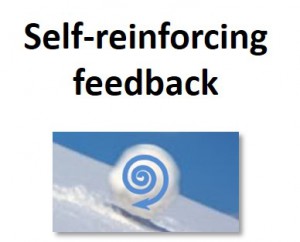 Have you noticed how some leaders and managers seem to motivate their team and achieve results effortlessly while other managers and leaders seem to struggle continuously? What is the secret of these apparently effortless managers? One of their main secrets is the cultivation of a self-reinforcing cycle of the development of trust and delivering on commitments.
Have you noticed how some leaders and managers seem to motivate their team and achieve results effortlessly while other managers and leaders seem to struggle continuously? What is the secret of these apparently effortless managers? One of their main secrets is the cultivation of a self-reinforcing cycle of the development of trust and delivering on commitments.
In general, one of the key ways we develop trust in us by those we work with is by delivering on our commitments. But if people trust us they are also more likely to buy into our ideas and proposals and to help us make them happen, that is, to help us deliver on our commitments. This, in turn, helps reinforce and expand the trust that others have in us. A virtuous cycle of delivering on commitments and growth of trust develops. As a result, the manager achieves a number of ever increasing benefits:
- Reduced resistance to change
- Earlier support for any proposed change initiatives
- More proactive engagement from staff in making the changes happen
- Increased positive suggestions and ideas
- Increased contribution of ‘discretionary effort’ by staff.
In spite of the power and significance of these benefits, they will not be obvious to the casual observer, nor will be the self-reinforcing dynamic that created them. As with most self-reinforcing feedback, the feedback cycle starts slowly, with little apparent impact for a considerable time. However, over time the level of trust grows to a point where the manager is given the benefit of any doubt by most, if not all, staff followed by the development of a culture of mutual trust and achievement.
This self-reinforcing dynamic highlights the critical importance of the early development of trust in us by those we work with, especially those that work for us. What can we do to start to build such early trust? The following behaviors and actions apply to almost all managerial situations:
- Delivering on all our commitments, large and small, as much as possible, and where we cannot do so, keeping others informed about progress
- Using direct and open communications, especially with those we manage
- Being fair and consistent in all our decision making
- Being honest and realistic about our own capabilities and expertise.
These behaviors are not natural or easy for many of us, but the power unleashed by the self-reinforcing cycle of trust and delivery make them well worth the effort.





Follow Us!